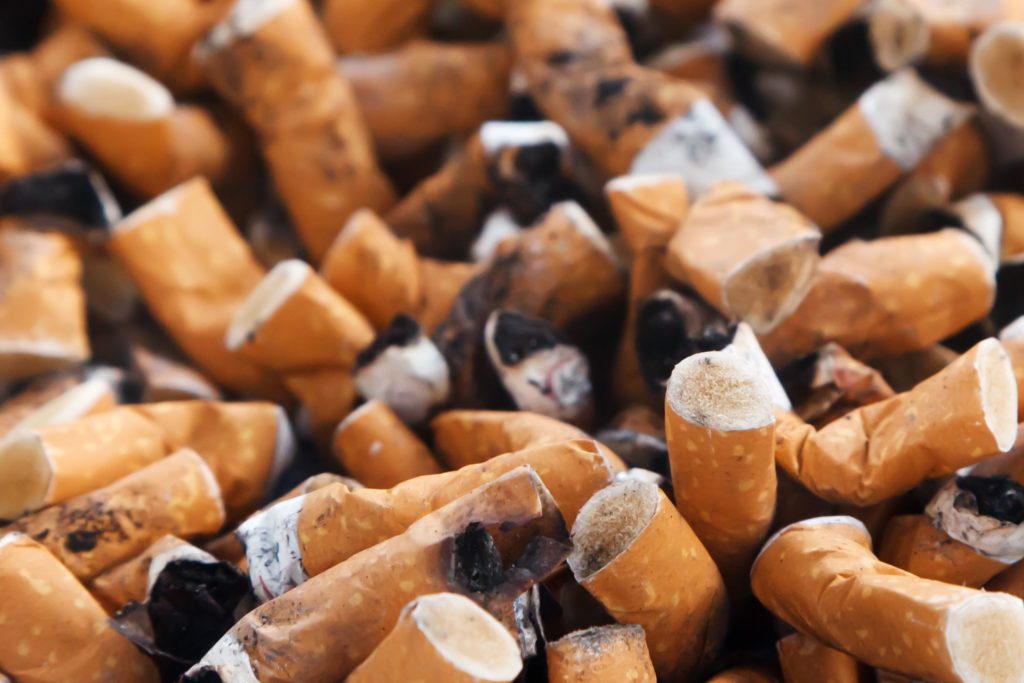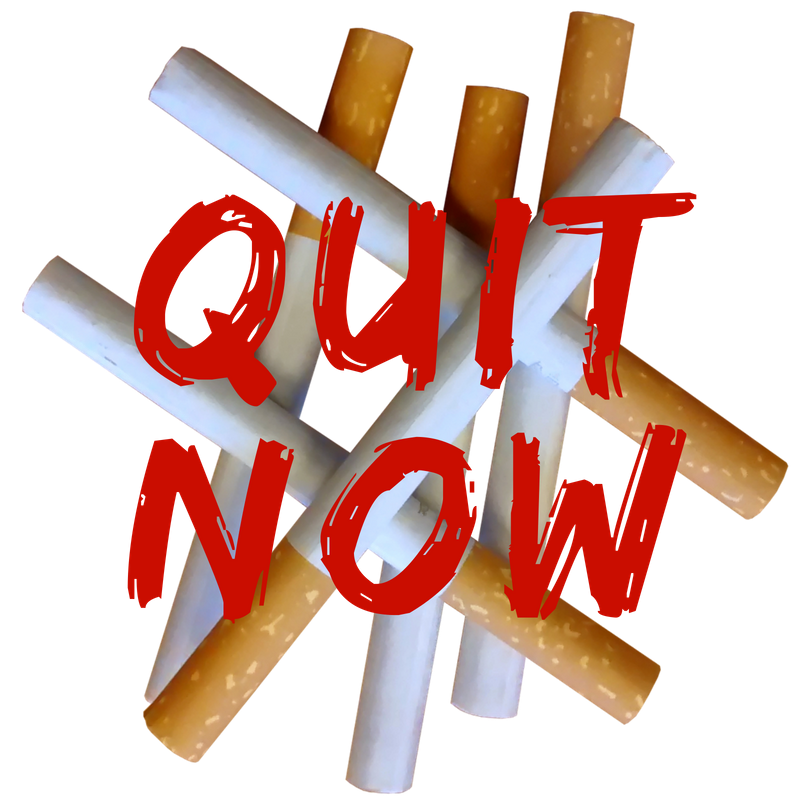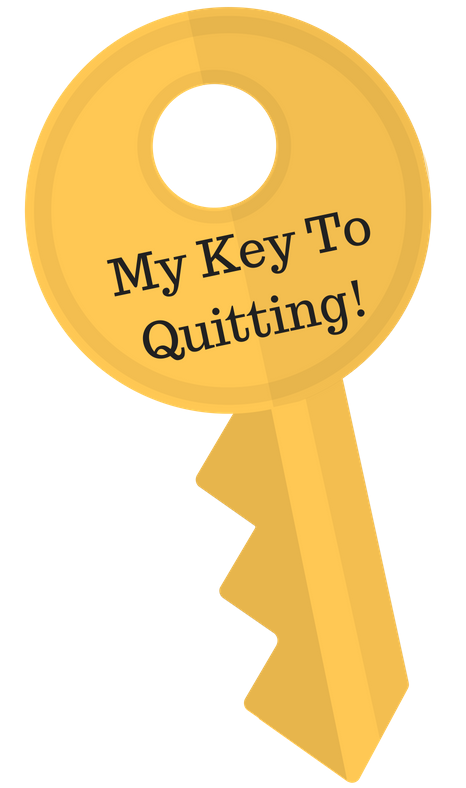Nicotine Addiction
“Why Should I Quit Smoking?”

Your LIFE depends on it!
Nicotine is a physically and mentally addictive substance that is, according to Medline, “the most common preventable cause of death. About half of the people who don’t quit smoking will die of smoking-related problems.“
The American Lung Association tells us that “there are approximately 600 ingredients in cigarettes [including Acetone, Arsenic and Lead]. When burned, they create more than 7,000 chemicals. At least 69 of these chemicals are known to cause cancer, and many are poisonous.”
QUIT for your FAMILY!
Secondhand Smoke is Deadly.
Take the steps to quit, not only because they want you to be alive to experience all the good things in life with them, but because you are putting them at risk, too. “Secondhand smoke is a serious health hazard for people of all ages, causing more than 41,000 [preventable] deaths each year [7,330 deaths from lung cancer and 33,950 deaths from heart disease.] Secondhand smoke can cause heart attacks; even relatively brief exposure can trigger a heart attack, according to a report by the Institute of Medicine.” (ALA) From Cancer.gov: “Exposure to secondhand smoke irritates the airways and has immediate harmful effects on a person’s heart and blood vessels.
Secondhand Smoke increases the risk of heart disease by an estimated 25 to 30% [and] the risk of stroke by 20 to 30%. Children exposed to secondhand smoke are at an increased risk of SIDS, ear infections, colds, pneumonia, and bronchitis. Secondhand smoke exposure can also increase the frequency and severity of asthma symptoms. Being exposed to secondhand smoke slows the growth of children’s lungs and can cause them to cough, wheeze, and feel breathless.”

Need more reasons to quit?
From Cancer.gov: “Cigarette smoking and exposure to tobacco smoke cause about 480,000 premature deaths each year in the United States. Of those premature deaths, about 36% are from cancer, 39% are from heart disease and stroke, and 24% are from lung disease. Mortality rates among smokers are about three times higher than among people who have never smoked.
Smoking harms nearly every bodily organ and organ system in the body and diminishes a person’s overall health. Smoking causes cancers of the lung, esophagus, larynx, mouth, throat, kidney, bladder, liver, pancreas, stomach, cervix, colon, and rectum, as well as acute myeloid leukemia. Smoking also causes heart disease, stroke, aortic aneurysm (a balloon-like bulge in an artery in the chest), COPD, diabetes, osteoporosis, rheumatoid arthritis, age-related macular degeneration, and cataracts, and worsens asthma symptoms in adults. Smokers are at higher risk of developing pneumonia, tuberculosis, and other airway infections. In addition, smoking causes inflammation and impairs immune function.”
Ready?
Resources to Help You Quit Smoking

Many people find that they want to quit smoking someday, but are comfortable with their routine or find that quitting is too difficult to stick to it.
Someday? Make it Today. Follow the links below to assess your addiction level, see how quickly lungs can recover after quitting and find ways to beat your cravings to stay smoke free for life. For Your Life.
Assess your Addiction Level
You may be more dependent than you think. This quiz can help you determine the level of your dependency and can give you ideas on how to tame your cravings.
What Happens After You Quit?
Medline outlines this effect and how quickly your health improves the MOMENT you quit: “[Y]our circulation begins to improve, and your blood pressure starts to return to normal. Your sense of smell and taste return, and it’s easier for you to breathe. In the long term, giving up tobacco can help you live longer. Your risk of getting cancer decreases with each year you stay smoke-free.” Doesn’t that sound like it’s worth the challenge?
Fight Craving With Exercise:
Physical Activity can be a one two punch in your toolbox for health – not only does it help to lessen withdrawal symptoms and help to replace a harmful activity for a helpful one, it helps your body in a positive way all on its own. Even walking for 30-45 minutes most days will help you to relieve stress and relax your body in an easy and effective way. Talk to your doctor about a plan for adding in a physical activity regimen into your daily life, tailored to your current fitness level.
Why Is It So Hard To Quit?
The American Heart Association has even more resources to help you understand what your body is going through and ways to be successful at quitting!
Determine Your Withdrawal Phase:
Once you decide to quit smoking, use this helpful quiz daily to help you determine where you are in your withdrawal journey. It “can help you understand what you are going through and how it is changing” for the better, every day!

Every person is different, but there are many different ways to overcome the addiction withdrawal symptoms and then finally the habit. We know it’s hard. Talk with your doctor about ways you can help yourself find the key to quitting for YOU! YOU are worth it, and your loved ones will be grateful for the extra time they have with you.